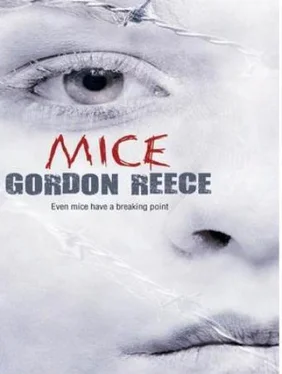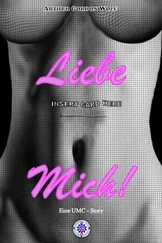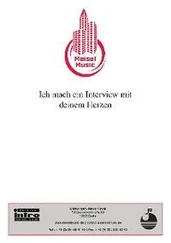One night during dinner we were playing highs and lows when Mum, with an anticipatory giggle, announced that her high that day had been slapping Blakely’s face .
‘You did what ?’ I asked incredulously.
‘I slapped Blakely’s face!’ she repeated with a selfsatisfied grin, like a child who’s proud of a naughty prank.
‘What — what happened?’
‘Well,’ she said, matter-of-factly, as if it were just another piece of office gossip, ‘he came into my office when he saw that I was on my own and started to talk to me about holiday dates for August. As we were talking he came round behind my chair and I thought he was going to touch my breast. I didn’t even think about it, I just hit him hard across his cheek!’
‘ Mum! Did anyone see?’
‘No, I don’t think so.’
‘What did he do?’
‘Nothing! Nothing at all. He just walked out holding his cheek. You should have seen the look on his face!’
I didn’t know what to say. The recollection clearly exhilarated her. She couldn’t stop talking about it, bursting into laughter every time she remembered the look on Blakely’s face.
‘He didn’t say a word!’ she cried. ‘He couldn’t believe it! He was in total shock! It was the last thing he expected me to do!’
I laughed along with her as best I could, but there was something about the whole thing that I found deeply disturbing; it left me feeling unsettled for days afterwards. Mum had always been the calm hand on the tiller and I didn’t want her to change. This new recklessness of hers scared me. I wasn’t sure I wanted to follow her into the uncharted waters she seemed set on exploring. I was worried that in this mood she’d say something in front of Sally and Brenda that could be our undoing. And it irked me that after everything that had happened I’d managed to find some balance, some equilibrium — so why the hell couldn’t she ?
On Monday, May the twenty-second, with just three weeks before my exams started, I began my intensive revision programme, long marked off on my bedroom wall calendar in a frenzy of red biro crosshatching.
This programme involved getting up at seven in the morning and putting in at least two good hours before Roger came at ten. In the evenings, instead of stopping when Mum got home, I worked from about five through to nine, when I’d finally stop and have a late dinner with her. I’d planned to work over the weekends too, but Mum insisted I have at least one complete day off a week. So I worked all day Saturday and left Sunday free.
Since the majority of the work I had to do was memorizing — dry labour that would require my very best concentration — I decided to move all my books and papers from the dining room and revise upstairs in my bedroom. I figured there’d be fewer distractions — no telephone ringing, no Mum going backwards and forwards looking for the scissors she’d misplaced for the millionth time or click-clicking her biro as she read through her papers in the lounge, no temptation to slip into the kitchen and make myself a coffee or a sandwich.
So I sat upstairs in my bedroom, sweltering in the heatwave that showed no sign of abating, forcing myself to memorize long quotes from Macbeth and page after page of irregular French verbs. Repeating them out loud over and over again with my eyes tightly shut, I learned the exact wording of Boyle’s law and Charles’s law, Ohm’s law and Archimedes’ principle. Working my way through box after box of tissues and gulping down the antihistamines Dr Lyle had given me, I memorized the day, month and year of the Reichstag fire, the invasion of the Ruhr, the Kellogg — Briand pact, the Munich putsch and the march on Rome. While the swallows darted around their nests in the eaves outside my window, I learned lists of statistics on Brazilian coffee production and annual rates of rain forest depletion until I could repeat them without even glancing at my notes.
It was only six weeks — six short weeks — since Mum and I had killed Paul Hannigan, and already I was back to thinking almost exclusively about my exams. It was only occasionally now that my mind strayed from my textbooks and I found myself thinking about the body rotting beneath the rose bushes.
I suppose I’d slowly come round to Mum’s way of thinking in spite of all my doubts, in spite of having seen too many movies where something always happens to trip the guilty up. I suppose I’d finally come to accept that she’d been right all along: we’d got away with it .
If the police hadn’t come to the house by now, then surely they were never going to. After all, they must have found Paul Hannigan’s car — it couldn’t have just sat in the Farmer’s Harvest’s car park week after week without being noticed. And Paul Hannigan must have been reported missing to the police after nearly two months. Somebody must have become concerned about his disappearance in that time. Hadn’t someone been trying to contact him that very first morning? They must have alerted the police by now. .
The only possible conclusion I could come to was that Mum had got it right — the police hadn’t made any link between the disappearance of Paul Hannigan and us, and in all probability they never were going to make any link between the disappearance of Paul Hannigan and us.
Besides, even if the police did come to the house now, they wouldn’t find anything. The kitchen had been scrubbed and disinfected so many times they wouldn’t find the tiniest speck of Paul Hannigan’s blood, not the faintest shadow of a fingerprint; the eight bin bags had gone from the spare room and the place Mum had hidden them was so perfect, so ingenious, that the police would never discover them.
We’d been lucky. We’d been very lucky. We’d killed a man. We’d hacked and beaten him to death on the tiled floor of our kitchen. And we’d got away with it .
It was Saturday the twenty-seventh of May. I got up at seven as my revision timetable dictated, put on my dressing gown and slipped out of my room, intending to make a quick coffee before starting work. I paused at Mum’s bedroom door and listened. I could hear her heavy regular breathing and smiled. I knew how precious every second’s sleep was to her.
I was coming downstairs trying not to make any noise and had just, with great difficulty, avoided stepping on the treacherous fourth step, when I saw it.
A white rectangle lay on the mat by the front door.
I knew at once it was something to be afraid of. The postman never came that early. It had been handdelivered .
I picked it up and saw the ugly grease smear ( butter? ) where a thick thumb had pressed the flap down.
I turned it over. The face was blank. I hurriedly tore it open.
Inside was a small scrap of lined paper ripped out of a secretary’s notepad. Halfway down the page was a message printed in block capitals with a dying biro. It read simply: I KNOW WHAT YOU DID.
I KNOW YOU KILLED HIM.
I WANT £20,000 OR I GO TO THE POLICE.
DON’T LEAVE THE HOUSE.
I WILL CALL TODAY.
I ran straight back upstairs and woke Mum.
Less than five minutes later Mum was sitting at the kitchen table in yesterday’s work blouse, a pair of jeans and the brown boots she wore for walks in the countryside. She gnawed at her bottom lip and stared fixedly at the cheap, translucent piece of paper. The bags under her eyes were starkly etched on her face that morning, like the outward manifestations of a sick soul. She was brooding, sullen, exuding a bruised bitterness, her hair a frazzle of knots. She hadn’t brushed her teeth and I could smell last night’s wine on her breath. She didn’t take her eyes off the letter for a second, not even as she reached for her coffee mug, brought it to her lips and sipped from the sticky rim.
Читать дальше












